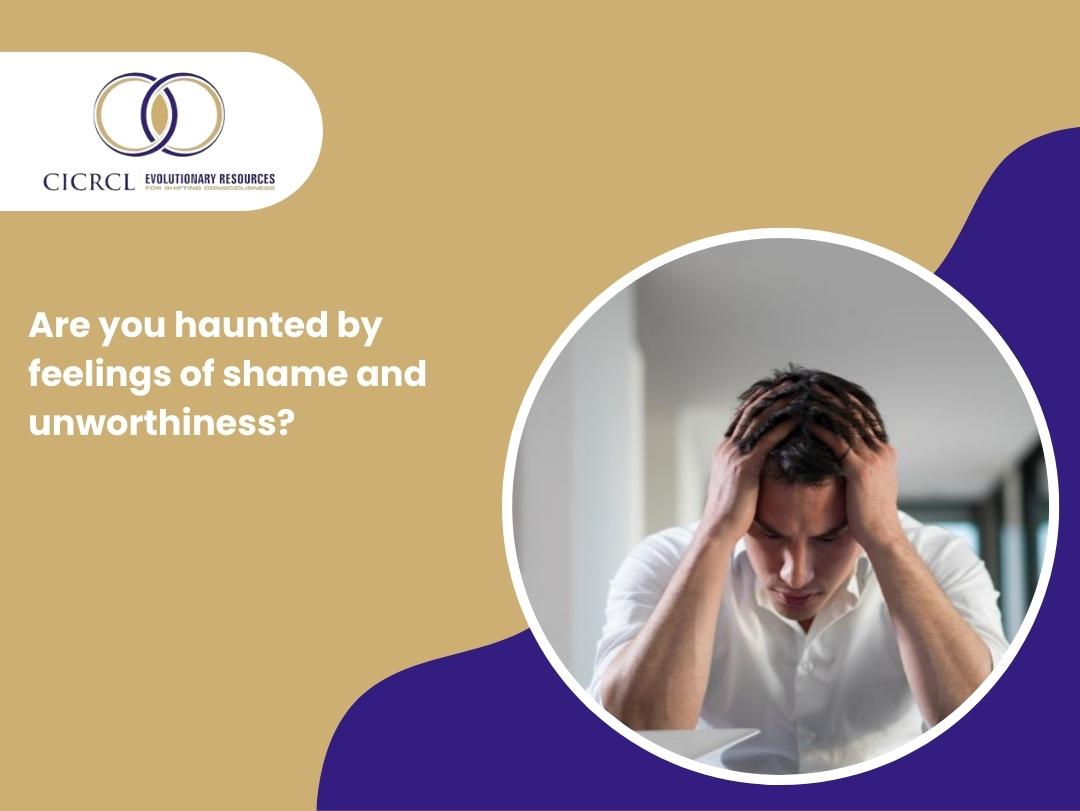Are you haunted by feelings of shame and unworthiness?
Do past mistakes or experiences leave you feeling broken and unworthy of love? If so, you’re not alone. Shame is a powerful emotion that can weigh heavily on our hearts and minds, keeping us trapped in a cycle of self-doubt and self-criticism. But there is hope. In this blog, we’ll explore the journey of healing shame, offering insights and strategies to help you reclaim your sense of self-worth and embrace a life of self-acceptance and growth.
What is Shame?
Shame is a complex emotion that stems from a deep sense of inadequacy or unworthiness. Unlike guilt, which is focused on our actions and behaviors, shame attacks our very sense of self. It tells us that we are fundamentally flawed, unlovable, and undeserving of happiness. Whether it’s shame from past mistakes, trauma, or societal expectations, the impact can be profound, affecting every aspect of our lives.
Barriers to Healing Shame:
Healing from shame can be challenging for several reasons:
- Deep-seated Beliefs: Shame often stems from deeply ingrained beliefs about ourselves and our worthiness. These beliefs may have been formed in childhood or through traumatic experiences, making them difficult to challenge and change.
- Fear of Vulnerability: Confronting shame requires vulnerability – the willingness to acknowledge and share our deepest fears and insecurities. Many people fear being judged or rejected if they open up about their shame, leading them to avoid or suppress these feelings instead of confronting them head-on.
- Social Stigma: Shame is often accompanied by a sense of isolation and stigma. People may feel ashamed of their shame, believing that they are alone in their struggles or that there is something inherently wrong with them for feeling this way. This societal stigma can make it difficult for individuals to seek help or support for their shame.
- Avoidance Coping: When faced with feelings of shame, some people may resort to avoidance coping strategies, such as denial, distraction, or substance abuse, to numb their pain temporarily. While these strategies may provide temporary relief, they ultimately prevent true healing from taking place.
- Lack of Resources: Access to resources and support for healing from shame can vary widely depending on factors such as socioeconomic status, cultural background, and geographic location. Many people may struggle to find affordable or accessible therapy, support groups, or other resources that can aid in their healing journey.
- Internalized Shame: In some cases, individuals may internalize feelings of shame to such a degree that they come to believe they deserve the mistreatment or neglect they experienced. This internalized shame can create a self-perpetuating cycle of self-blame and self-destructive behavior, making it even harder to break free from shame’s grip.
- Complexity of Trauma: For individuals who have experienced trauma, healing from shame may be further complicated by the complexity of their trauma history. Trauma can shatter a person’s sense of safety, trust, and self-worth, making it difficult to navigate the healing process without the support of a trained therapist or counselor.
Overall, healing from shame requires courage, compassion, and a willingness to confront the deepest parts of ourselves. It is a journey that often involves setbacks and challenges, but with the right support and resources, it is possible to break free from shame’s grip and embrace a life of self-acceptance and growth.
The Role of the Shame Healer:
Enter the shame healer – a guide and companion on your journey of self-discovery and healing. A shame healer is someone who offers compassion, empathy, and understanding as you navigate the rocky terrain of shame. Whether it’s a therapist, coach, mentor, or trusted friend, a shame healer provides a safe space for you to explore your feelings, confront your inner demons, and begin the process of healing from shame.
Healing from Shame:
Healing from shame is not a linear process, nor is it easy. It requires courage, vulnerability, and a willingness to confront the parts of ourselves that we’d rather keep hidden. But it is possible. Here are some strategies to help you on your journey of healing:
- Cultivate Self-Compassion: One of the most powerful antidotes to shame is self-compassion. Show yourself the same consideration and compassion that you would show a friend in need. Practice self-care, speak to yourself with gentleness, and remind yourself that you are worthy of love and acceptance.
- Challenge Shame-Based Beliefs: Identify the negative beliefs and self-talk that contribute to your feelings of shame. Are there specific messages or memories that trigger shame for you? Challenge these beliefs by questioning their validity and reframing them with more compassionate and empowering perspectives.
- Practice Vulnerability: Shame thrives in secrecy and isolation. By opening up to trusted friends, family members, or support groups, you can begin to break free from its grip. Share your experiences, fears, and struggles with others who will validate and support you on your journey.
- Explore Your Story: Take time to explore the origins of your shame. Are there past experiences or traumas that have contributed to your feelings of unworthiness? Journaling, therapy, or creative expression can be powerful tools for uncovering and processing these underlying wounds.
- Set Boundaries: Learn to set healthy boundaries to protect yourself from shame triggers and toxic relationships. Surround yourself with people who uplift and support you, and distance yourself from those who perpetuate feelings of shame or inadequacy.

Embracing Self-Acceptance and Growth:
As you embark on your journey of healing from shame, remember that self-acceptance is the key to unlocking your true potential. Embrace your imperfections, honor your strengths, and celebrate your progress along the way. And know that growth often requires And know that growth often requires patience and persistence. Be gentle with yourself on this journey, and celebrate the small victories as you move closer to a place of greater self-acceptance and wholeness.
Get Real: The Hazards of Living Out of Your False Self
Are you tired of living behind a facade, hiding your true self out of fear of judgment or rejection? “Get Real: The Hazards of Living Out of Your False Self” offers a transformative journey toward authenticity and self-acceptance, making it the perfect companion for those seeking to heal from shame.
Why You Should Buy It:
- Healing from Shame: “Get Real” provides practical insights and strategies for confronting shame and embracing your true identity. Through real-life examples and actionable exercises, this book guides you on a journey of self-discovery and healing, helping you break free from the shackles of shame and reclaim your sense of self-worth.
- Authenticity and Self-Acceptance: Living authentically is essential for overcoming shame and living a fulfilling life. “Get Real” offers valuable guidance on how to shed the layers of your false self and embrace your authentic identity with courage and confidence. By aligning your actions with your true values and beliefs, you can cultivate a deeper sense of self-acceptance and inner peace.
- Empowerment and Growth: “Get Real” empowers you to take control of your life and create meaningful change from the inside out. By challenging societal expectations and embracing your unique strengths and vulnerabilities, you can unlock your full potential and experience profound personal growth and transformation.
Ready to break free from the chains of shame and live authentically? Order your copy of “Get Real: The Hazards of Living Out of Your False Self” today and embark on a journey of self-discovery, healing, and empowerment. Don’t let shame hold you back any longer – it’s time to get real and embrace the fullness of who you are.
Conclusion:
Healing from shame is not easy, but it is possible. By cultivating self-compassion, challenging shame-based beliefs, practicing vulnerability, and surrounding yourself with supportive allies, you can begin to break free from the chains of shame and embrace a life of self-acceptance and growth. Remember, you are not defined by your past mistakes or experiences. You are worthy of love, acceptance, and belonging just as you are.
So, take the first step on your journey of healing today. Reach out to a shame healer, join a support group, or simply start by offering yourself a little extra kindness and compassion. Together, we can break the silence surrounding shame and create a world where everyone can embrace their true worthiness and potential.
If you’re ready to take the next step on your journey of healing from shame, consider reaching out to a therapist or counselor who specializes in shame resilience and self-acceptance. With their guidance and support, you can begin to uncover the roots of your shame, challenge negative beliefs, and cultivate a deeper sense of self-worth and belonging.
Remember, you are not alone on this journey. There is hope, there is healing, and there is a brighter future waiting for you on the other side of shame.



